It all started with the launch of the Yawww NFT marketplace and the introduction of 0% royalty on NFT sales. Traders were happy. It allowed them to sell NFTs for the price they set instead of sharing (in some cases 12%) a portion of funds with project treasuries.
Trading volume on Yawww skyrocketed, and the effect rippled through the whole Solana NFT ecosystem. While degens were happy trading, creators noticed the royalties revenue dropping significantly. The drama started, and the community split into two camps – those who preferred 0% royalties and others who argued that royalty revenue supports project growth and is necessary for sustainable growth.
In response to the falling volume, Magic Eden introduced Metashield in September last year. It allowed founders to enforce restrictions, such as updating the NFT metadata, blurring the images, or flagging the NFT if it was purchased on a 0% royalty marketplace.
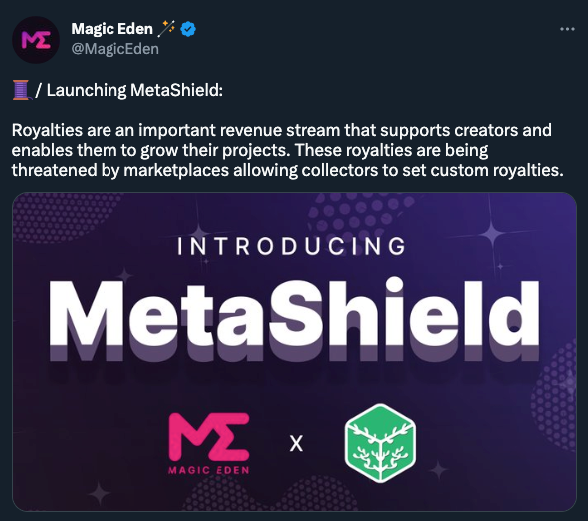
For NFTs protected by MetaShield, buyers must pay their royalty fee debts to “unshield” and remove any limitations artists have implemented on these assets.
The solution was not perfect, though. Magic Eden kept losing users and ended up offering an option for a buyer to pay full, half, or no royalties.
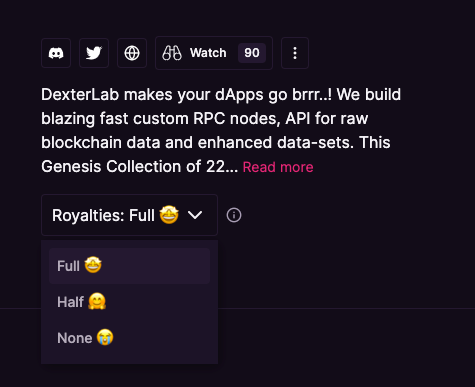
But the fight wasn’t over. The developers in the space were still working better solutions to enforce royalties.
What are pNFTs?
Metaplex has recently introduced a new standard – Programmable NFTs; pNFTs are just like NFTs, but the new asset class allows developers to implement specific rules, including transfer restrictions that can be used to enforce royalties.
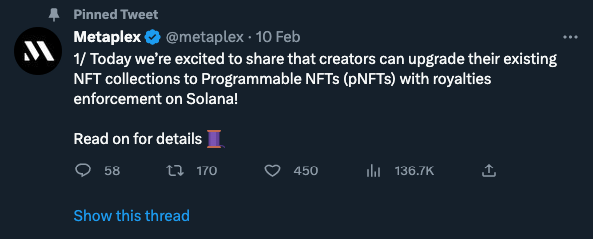
Now, project founders can choose to update their collections to pNFTs, and they can do this for 90 days. After the 90-day upgrade window, creators can choose to mint only new collections using either the existing NFT standard or the new Programmable NFT asset class.
Many collections, including bluechip projects like DeGods, y00ts and Okay Bears have already started the migration process. You can check the full collection list below:
https://royalties.metaplex.com/collections
How does it work?
The essence of pNFTs is the ability to specify custom rules that must be satisfied for any actions taken on the NFT.
Simply put, an NFT sale is not much different from a wallet-to-wallet transfer. When a user lists an NFT for sale on a marketplace, technically, he transfers it to the wallet of the marketplace.
With the new pNFT standard, founders can only allow tokens to be transferred to the marketplaces which support royalties. If the rule is not met, the transfer will not be possible.
That said, for the system to work, those marketplaces must also support pNFTs. Only then, they can be included in the rule.
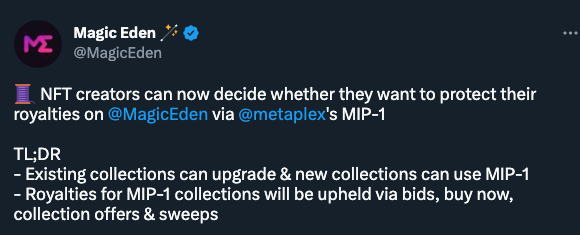
Programs fully compatible with pNFTs:
- MagicEden
- Hyperspacexyz
- phantom
- solflare_wallet
- xNFT_Backpack
- Cardinal_labs
- Coralcubenft
- Tensor_hq
- Hadeswap
- SharkyFi
- FamousFoxFed raffles and lending,
- Frakt_hq
- rainfi_
- ElixirNFT
- SolanartNFT
The platforms will still support the existing NFTs, and projects/creators will always be able to choose the asset class that best fits their use case.
What does it mean for a buyer?
We are yet to see if the 0% fee days are over, but if the collection is transitioned to a new pNFT standard and the rules to enforce royalties are applied, a buyer will no longer have the option to opt-out or select what royalties he wants to pay as before.
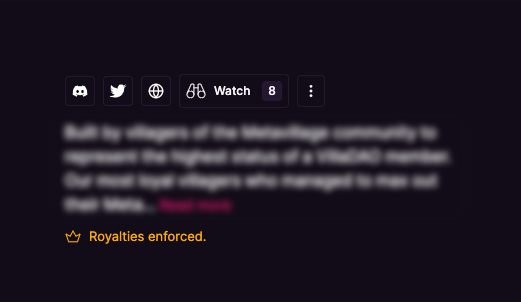
Are the enforced royalties a good thing or a bad thing? People are divided. The new Metaplex update has resurfaced important questions around decentralization and how the Solana ecosystem should function.